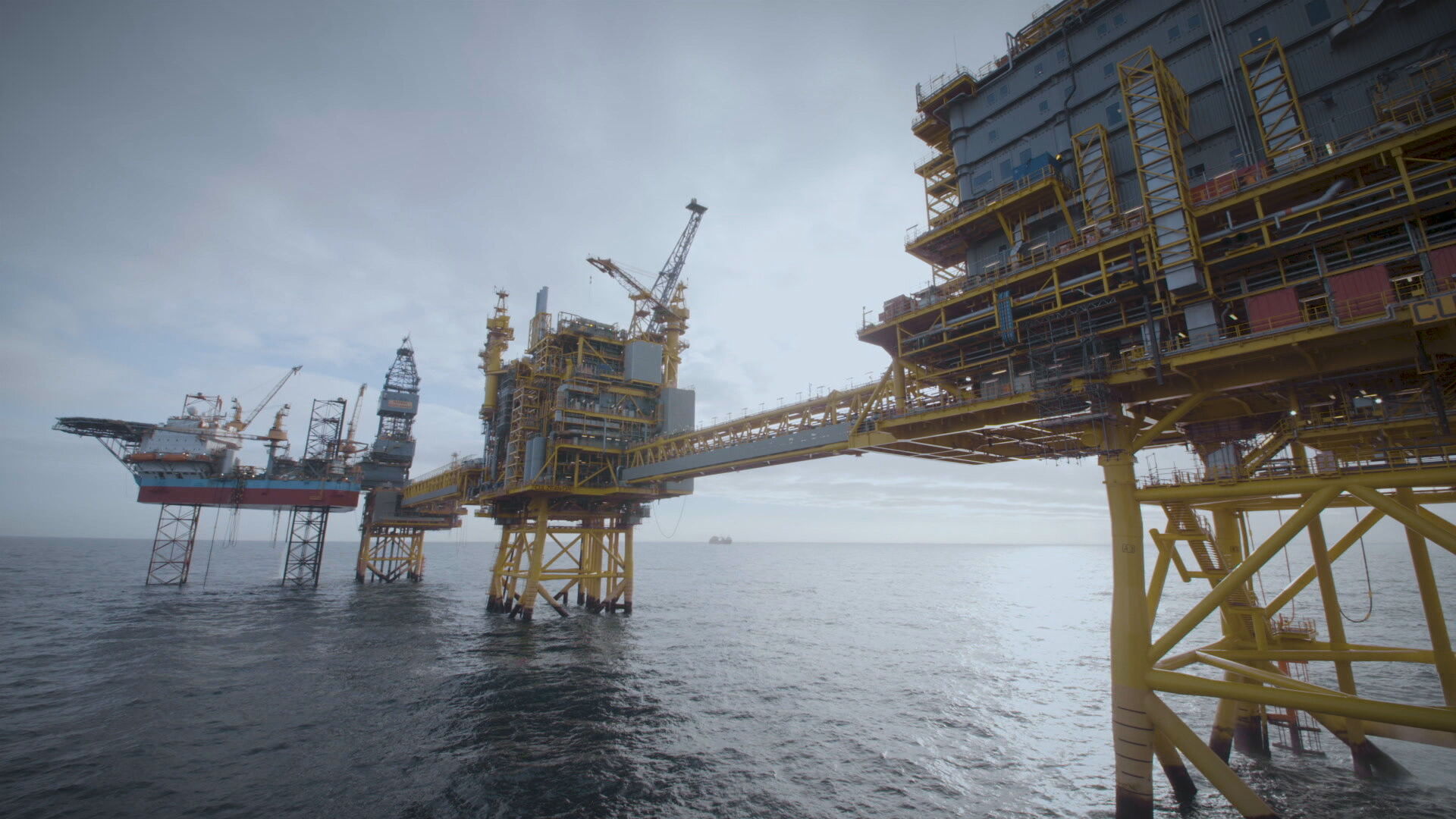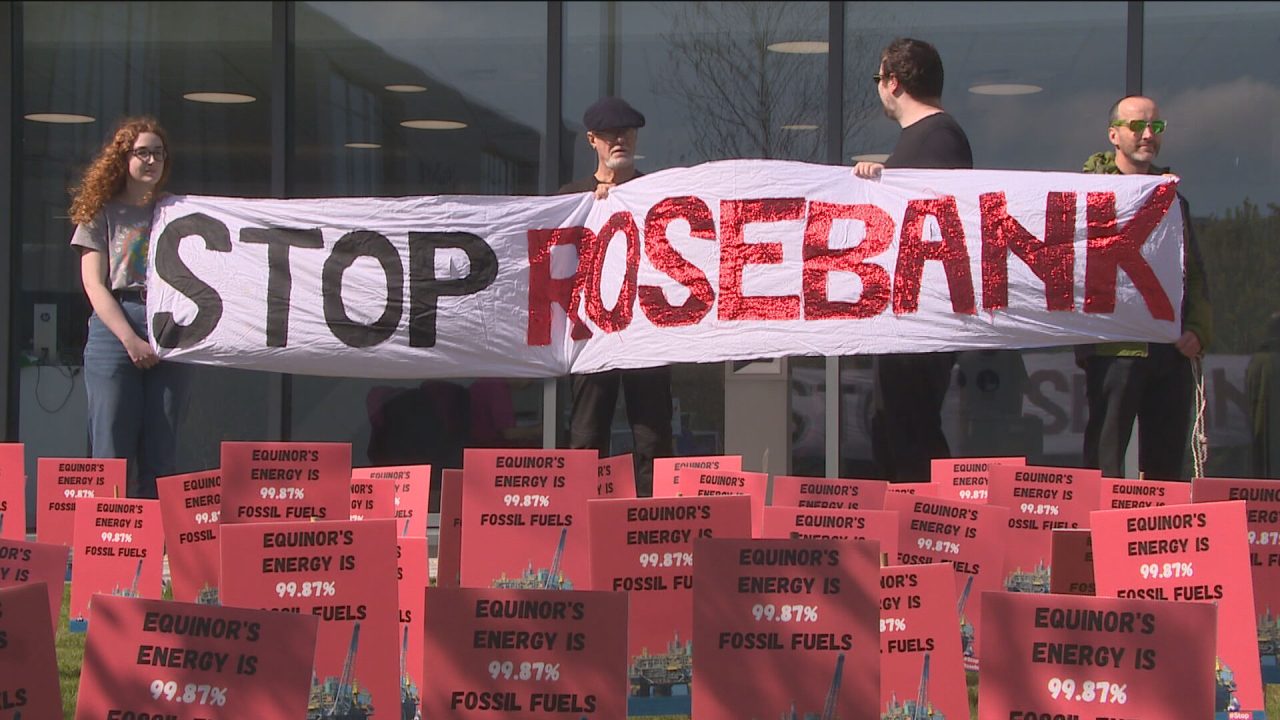The UK Government is being taken to court by environmental charities in a bid to stop the development of Rosebank oil field.
Uplift and Greenpeace are mounting separate legal challenges seeking to overturn the government’s decision to build the UK’s largest untapped North Sea oilfield.
The campaign groups have both applied to the Court of Session in Edinburgh for a judicial review of the decision by the energy secretary, currently Claire Coutinho, and the North Sea Transition Authority (NSTA), legally known as the Oil and Gas Authority, to grant consent to the project.
Campaigners said consent is “incompatible” with UK climate plans.
What are their arguments?
Arguments by Uplift and Greenpeace UK include that it is unlawful because it ignores the impact of emissions from burning Rosebank’s oil, it is not compatible with the government’s plans to cut greenhouse gas emissions and achieve a safe climate, and it would damage a protected area of the North Sea and the diverse marine life it supports.
Rosebank, 80 miles north-west of Shetland, contains around 500 million barrels of oil, which when burned would emit as much carbon dioxide as running 56 coal-fired power stations for a year.
Drilling will take place in the Faroe-Shetland Sponge Belt Nature Conservation Marine Protected Area (NCMPA) and only 25km from an important breeding site for seabirds in the Seas off Foula Special Protected Area.
They argue drilling and laying subsea cable will destroy habitats for sponges and other species living on the seabed while oil contamination would affect whales and wild birds.
How much will it cost?
Campaigners argue the project won’t cut household energy bills as the oil will be exported and sold at market prices .
Tessa Khan, executive director of Uplift and a climate lawyer, said: “If Rosebank goes ahead, the UK will blow its own plans to stay within safe climate limits. It’s that simple.
“If the government disagrees, it needs to provide evidence and prove it in court. The regulator also needs to be open about its reasons for approving a huge oil field when we’re facing a worsening climate crisis.
 STV News
STV News“And for what? Rosebank is getting billions in tax breaks, but it will do nothing to lower bills or boost UK energy security as it’s mostly oil for export.
“People have had enough of oil and gas companies getting their way all the time. This case is about forcing our government to put the public’s safety first, over their need to profit.
“What’s clear from this year’s climate talks is that the UK Government, like other oil producing countries, is failing to protect our world from dangerous climate change. But rather than lose hope, we can and will hold them to account, in court, starting with this decision to approve Rosebank.”
Greenpeace UK’s co-executive director, Areeba Hamid, said: “Rosebank’s development was approved under the false claim that it is entirely compatible with the UK’s legally binding climate commitments. This is a lie.
“The government used a rigged climate assessment to approve its development, deliberately ignoring all of the emissions that will come from burning the 500 million barrels of oil it contains.
“It’s like building a bomb and claiming it’s completely harmless so long as no one detonates it.
“Since its oil will be exported and sold by Norwegian fossil fuel giant, Equinor, Rosebank won’t deliver any benefits to the UK’s energy security, economy, or lower bills. It’s just more proof that this government is putting the profits of oil and gas companies over the British public and the planet.
“Rosebank’s development simply cannot go ahead. And we’re taking the government to court to make sure that it doesn’t.”
Background
Demands for a global phase-out of fossil fuels took centre stage at the COP28 UN climate summit, and the UK government’s advisers, the Climate Change Committee (CCC), recently said that the expansion of fossil fuel production is not in line with the UK’s legally-binding net zero target.
They said meeting the target “means investing now in low-carbon industries to deliver lasting economic benefits to the UK” and an “unambiguous commitment to the fossil fuel phase out, accepting that global reserves are already too great.”
The UK government and oil and gas companies have agreed a target of halving CO2 emissions from oil and gas production by 2030 (from 2018 levels) under the North Sea Transition Deal.
However, the CCC has called for the industry to set “more ambitious decarbonisation targets (well beyond the 50% target set out in the North Sea Transition Deal)”.
Even before Rosebank was approved the NSTA, which regulates the oil and gas industry, admitted that the sector was not on course to meet its 2030 target.
The NSTA gave Norwegian state-owned company Equinor consent to develop Rosebank in September, just a day after the International Energy Agency repeated its warning that no new oil and gas fields were consistent with the target of limiting global heating to 1.5C.
The UK Government has been contacted for comment.
Follow STV News on WhatsApp
Scan the QR code on your mobile device for all the latest news from around the country


























